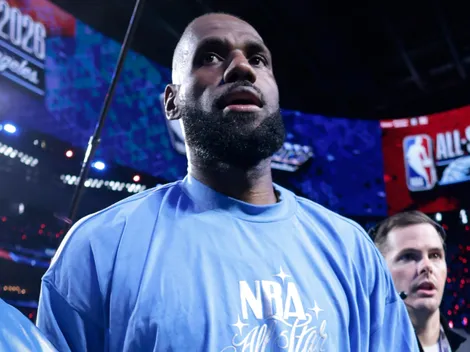For decades, people around the NBA have talked about how Michael Jordan’s success and the Chicago Bulls’ dynasty wouldn’t have been possible without Scottie Pippen. People acknowledge his talent and contributions as one of the greatest two-way players of all time.
But, apparently, that has never been enough for the Hall of Famer. Since his days at the Windy City, leaving on the shadow of the most famous athlete on Earth have made him feel unappreciated and left behind.
So, after watching Michael Jordan’s “The Last Dance” and not liking the way he was protrayed, the six-time NBA champion decided to speak his truth on his new book “Unguarded,” which includes some controversial remarks.
Scottie Pippen Takes A Huge Shot At Michael Jordan On His New Book
(Transcript via Fadeaway World)
“I had expected much more. When I was first told about it over a year earlier, I couldn’t wait to tune in, knowing it would feature rare footage.
My years in Chicago, beginning as a rookie in the fall of 1987, were the most rewarding of my career: twelve men coming together as one, fulfilling the dreams we had as kids in playgrounds across the land when all we needed was a ball, a basket, and our imagination. To be a member of the Bulls during the 1990s was to be part of something magical. For our times and for all time.
Except Michael was determined to prove to the current generation of fans that he was larger-than-life during his day—and still larger than LeBron James, the player many consider his equal, if not superior. So Michael presented his story, not the story of the “Last Dance,” as our coach, Phil Jackson, billed the 1997–98 season once it became obvious the two Jerrys (owner Jerry Reinsdorf and general manager Jerry Krause) were intent on breaking up the gang no matter what happened.”
Pippen Didn’t Like The Way He Was Portrayed
Pippen went on to say that he didn’t like how his early days were portrayed and how everything was centered around Michael.Maybe, no one told Scottiethat the documentary was about Michael Jordan.
“Even in the second episode, which focused for a while on my difficult upbringing and unlikely path to the NBA, the narrative returned to MJ and his determination to win. I was nothing more than a prop. His “best teammate of all time,” he called me. He couldn’t have been more condescending if he tried.
On second thought, I could believe my eyes. I spent a lot of time around the man. I knew what made him tick. How naïve I was to expect anything else.
Each episode was the same: Michael on a pedestal, his teammates secondary, smaller, the message no different from when he referred to us back then as his “supporting cast.” From one season to the next, we received little or no credit whenever we won but the bulk of the criticism when we lost. Michael could shoot 6 for 24 from the field, commit 5 turnovers, and he was still, in the minds of the adoring press and public, the Errorless Jordan.
Now here I was, in my midfifties, seventeen years since my final game, watching us being demeaned once again. Living through it the first time was insulting enough.”
Well, when you win 5 MVPs, 1 Defensive Player of the Year, 10 Scoring Titles, 3 All-Star MVPs, 6 Finals MVPs, lead the league in steals 3 times, and make 14 All-Star teams, 11 All-NBA teams, and 9 All-Defensive teams;everybody else around you is – in fact – your supporting cast.





